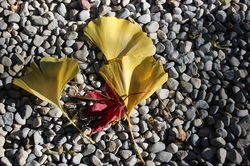 Photograph: Ginkgo biloba
Photograph: Ginkgo biloba It got me thinking about botany (so many things do) and what a part in that latitude plays. Seeing that we share a common latitude, it shouldn’t be surprising that China’s field botany is much like our own, because plants establish themselves and colonize areas that suit them, just as people do. Chinese and Canadian native plants thrive in similarly temperate climates, a fact that might give both countries pause regarding climate change. Predictably, then, gingko biloba (i.e. “two-lobed”), while long cultivated in China, also does well in Canadian cities, where it also withstands urban conditions admirably. But what makes it so exciting is its pedigree; ginkgo’s fossil record dates it back 270 million years; apparently its genetic flexibility allowed it to adjust without undergoing much speciation - ginkgo could be said to demonstrate extreme ecologial conservatism, restricting its environment to disturbed streamsides for hundreds of millions of years. Good grief. Jon and I think living in the same house for thirty-five years counts for something. Ginkgos sure know how to play the long game. So to paraphrase Gertrude Stein, a ginkgo leaf is a ginkgo leaf is a gingko leaf, whether this year’s or in its stone incarnation.
That must be why we can talk about giving some people “latitude” but you never hear an argument for “longitude.” Limited variation is easier. So, while "Eastern" versus "Western" might involve different continents, one can also expect profound natural similarities, those driven by sharing Earth's tilt; "Northernly" versus "Southernly," on the other hand, presages deep-seated differences, whether in temperature ranges or in characteristic weather patterns. That’s not to say that I wasn’t thrilled to find a rare (at least around here) Carolinian species - sassafras - in the ravine edging our back garden; I did, however, recognize it as bit of a natural stretch, a southern denizen, who verged on an anomaly.
Might this begin to explain a recent election on our vertically-organized continent? A bit too much longitude.
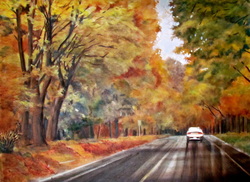
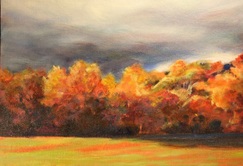
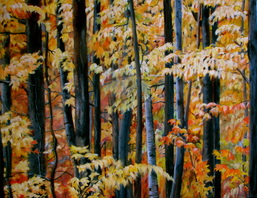
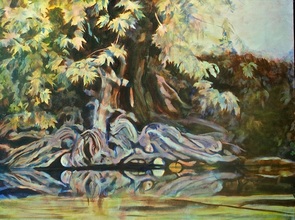
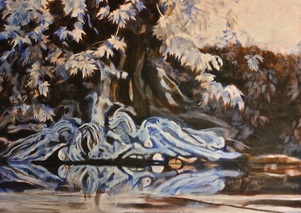
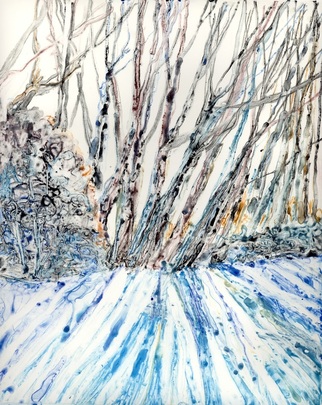
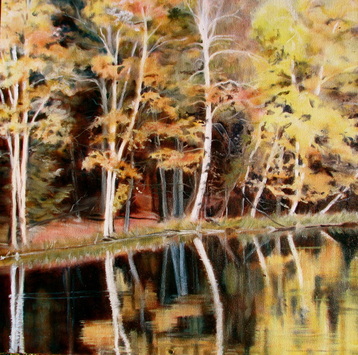
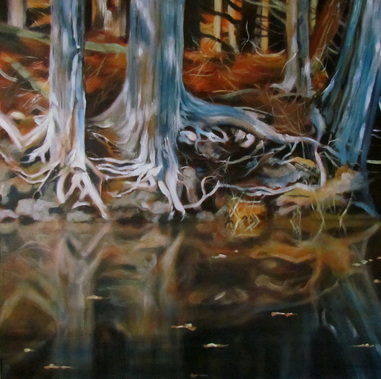

 RSS Feed
RSS Feed
